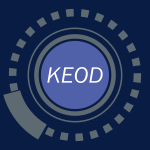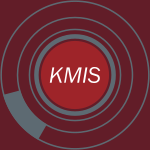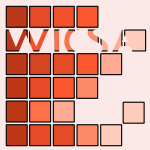173 papers:
 CASE-2015-YussofSMSO #development #social
CASE-2015-YussofSMSO #development #social- ASKNAO apps targeting at social skills development for children with autism (HY, MHS, MAM, SS, ARO), pp. 973–978.
 VLDB-2015-RahmanTRAD #estimation
VLDB-2015-RahmanTRAD #estimation- Worker Skill Estimation in Team-Based Tasks (HR, ST, SBR, SAY, GD), pp. 1142–1153.
 ITiCSE-2015-Kumar #problem #semantics
ITiCSE-2015-Kumar #problem #semantics- Solving Code-tracing Problems and its Effect on Code-writing Skills Pertaining to Program Semantics (ANK), pp. 314–319.
 CHI-2015-SlovakGF #challenge #design #social
CHI-2015-SlovakGF #challenge #design #social- Designing Social and Emotional Skills Training: The Challenges and Opportunities for Technology Support (PS, RGB, GF), pp. 2797–2800.
 CHI-2015-Vicencio-Moreira #game studies
CHI-2015-Vicencio-Moreira #game studies- Now You Can Compete With Anyone: Balancing Players of Different Skill Levels in a First-Person Shooter Game (RVM, RLM, CG), pp. 2255–2264.
 CSCW-2015-SlovakTTOF #challenge #on the
CSCW-2015-SlovakTTOF #challenge #on the- On Becoming a Counsellor: Challenges and Opportunities to Support Interpersonal Skills Training (PS, AT, PT, PO, GF), pp. 1336–1347.
 DHM-EH-2015-NakamuraKKMK #development #self #student #using
DHM-EH-2015-NakamuraKKMK #development #self #student #using- Development of a Self-learning System for Chest Auscultation Skills Using an RFID Reader for Nursing Students (MN, KK, YK, JM, MKP), pp. 474–481.
 DHM-EH-2015-SuzukiOSSI #communication
DHM-EH-2015-SuzukiOSSI #communication- Verbal and Nonverbal Skills in Open Communication: Comparing Experienced and Inexperienced Radio Duos (NS, YO, HS, MS, NI), pp. 490–499.
 DHM-HM-2015-ChottikamponMMS #comparison #metric
DHM-HM-2015-ChottikamponMMS #comparison #metric- Comparison of Braiding Skills Between Expert and Non-experts by Eye’s Movement Measurement (KC, SM, HM, PS, AG, TU, MI, MT, HN, HH), pp. 14–23.
 DHM-HM-2015-ChottikamponTMS #comparison #metric
DHM-HM-2015-ChottikamponTMS #comparison #metric- Comparison Knitting Skills Between Experts and Non-experts by Measurement of the Arm Movement (KC, ST, SM, PS, MI, HN, HH), pp. 3–13.
 DHM-HM-2015-EndoSSNKH #comparison
DHM-HM-2015-EndoSSNKH #comparison- Comparison of Description Skill on Characteristics of the Urushi Crafts Work Between Expert Craftspeople and Non-expert Craftspeople (AE, MS, YS, SN, NK, HH), pp. 46–57.
 DHM-HM-2015-EndoYASSH #difference #process
DHM-HM-2015-EndoYASSH #difference #process- Effect of Skill Level Difference in the Polishing Process of the Maki-e Making Technique (AE, HY, CA, TS, YS, HH), pp. 24–34.
 DHM-HM-2015-IkaiMKIH #analysis
DHM-HM-2015-IkaiMKIH #analysis- Analysis of the Skills to Acupuncture (YI, MM, NK, HI, HH), pp. 66–73.
 DHM-HM-2015-IkenoboWSG #difference #how
DHM-HM-2015-IkenoboWSG #difference #how- Differences in How Long an Ikebana Work Lasts Depending on the Skill Used in Cutting Floral Materials (YI, ZW, YS, AG), pp. 74–82.
 DHM-HM-2015-ItoTGK #monitoring
DHM-HM-2015-ItoTGK #monitoring- Study of Caregivers’ Skills for Monitoring Senior Residents (MI, YT, AG, NK), pp. 83–94.
 DHM-HM-2015-KurataniHHKUGH #analysis #comparison #process
DHM-HM-2015-KurataniHHKUGH #analysis #comparison #process- Expert vs. Elementary Skill Comparison and Process Analysis in VaRTM-Manufactured Carbon Fiber Reinforced Composites (YK, KH, TH, TK, TU, AG, HH), pp. 133–142.
 DHM-HM-2015-SugimotoYNG #analysis #process
DHM-HM-2015-SugimotoYNG #analysis #process- EMG Activity Analysis of Expert Skills on Handheld Grinding Work for Metallographic Sample (TS, HY, HN, AG), pp. 165–173.
 DHM-HM-2015-SuzukiKTGH
DHM-HM-2015-SuzukiKTGH- An Investigation on Skillful Gel-Coat Techniques and its Application to Beginner’s Application (ES, TK, YT, AG, HH), pp. 182–191.
 DUXU-DD-2015-Fabri #design #education #lessons learnt #student
DUXU-DD-2015-Fabri #design #education #lessons learnt #student- Thinking with a New Purpose: Lessons Learned from Teaching Design Thinking Skills to Creative Technology Students (MF), pp. 32–43.
 HCI-IT-2015-SakoNK #estimation #random
HCI-IT-2015-SakoNK #estimation #random- Violin Fingering Estimation According to the Performer’s Skill Level Based on Conditional Random Field (SS, WN, TK), pp. 485–494.
 HCI-UC-2015-BorsciLBJ #assessment #prototype
HCI-UC-2015-BorsciLBJ #assessment #prototype- Early Prototype Assessment of a New Virtual System for Training Procedural Skills of Automotive Service Operators: LARTE Tool (SB, GL, MB, BJ), pp. 135–143.
 HIMI-IKC-2015-Kaewkiriya #design #framework #recommendation #student
HIMI-IKC-2015-Kaewkiriya #design #framework #recommendation #student- Design of Framework for Students Recommendation System in Information Technology Skills (TK), pp. 109–117.
 LCT-2015-KobanLO #game studies #video
LCT-2015-KobanLO #game studies #video- Good Newbie or Poor Newbie? Determinants of Video Game Skill Acquisition at an Early Stage (KK, BL, PO), pp. 608–619.
 SEKE-2015-LacherWFPNM #behaviour #empirical #metric
SEKE-2015-LacherWFPNM #behaviour #empirical #metric- A Behavior Marker tool for measurement of the Non-Technical Skills of Software Professionals: An Empirical Investigation (LLL, GSW, FF, MP, KEN, JM), pp. 409–414.
 SEKE-2015-MatturroFR #agile #bibliography
SEKE-2015-MatturroFR #agile #bibliography- Soft Skills in Scrum Teams. A survey of the most valued to have by Product Owners and Scrum Masters (GM, CF, FR), pp. 42–45.
 HT-2014-ChelaruHNS #communication #network
HT-2014-ChelaruHNS #communication #network- Recognizing skill networks and their specific communication and connection practices (SC, EH, KDN, PS), pp. 13–23.
 ITiCSE-2014-EricssonW #mining #what
ITiCSE-2014-EricssonW #mining #what- Mining job ads to find what skills are sought after from an employers’ perspective on IT graduates (ME, AW), p. 354.
 ITiCSE-2014-FerreiraM #algorithm #analysis #design #education #using
ITiCSE-2014-FerreiraM #algorithm #analysis #design #education #using- The magic of algorithm design and analysis: teaching algorithmic skills using magic card tricks (JFF, AM), pp. 75–80.
 ITiCSE-2014-Prior #assessment #named #online #sql
ITiCSE-2014-Prior #assessment #named #online #sql- AsseSQL: an online, browser-based SQL skills assessment tool (JRP), p. 327.
 CHI-2014-HarrisonXSH #interactive #named #physics #tool support
CHI-2014-HarrisonXSH #interactive #named #physics #tool support- TouchTools: leveraging familiarity and skill with physical tools to augment touch interaction (CH, RX, JS, SEH), pp. 2913–2916.
 DHM-2014-KikuchiTTGH #information management
DHM-2014-KikuchiTTGH #information management- Biomechanics Investigation of Skillful Technician in Spray-up Fabrication Method — Converting Tacit Knowledge to Explicit Knowledge in the Fiber Reinforced Plastics Molding (TK, YT, YT, AG, HH), pp. 24–34.
 DHM-2014-SugimotoYG #analysis
DHM-2014-SugimotoYG #analysis- Analysis of Expert Skills on Handheld Grinding Work for Metallographic Sample (TS, HY, AG), pp. 66–77.
 DHM-2014-TakaiYGWI #case study #comparative
DHM-2014-TakaiYGWI #case study #comparative- Comparative Study on the Feature of Kitchen Knife Sharpening Skill between Expert and Non-Expert (YT, MY, AG, ZW, AI), pp. 292–300.
 DUXU-DP-2014-ShafiqCIFAAI #design #effectiveness #interactive #personalisation #visual notation
DUXU-DP-2014-ShafiqCIFAAI #design #effectiveness #interactive #personalisation #visual notation- Skill Specific Spoken Dialogues Based Personalized ATM Design to Maximize Effective Interaction for Visually Impaired Persona (MS, JGC, MI, MF, MA, IA, AI), pp. 446–457.
 HIMI-AS-2014-KojimaHMH #physics
HIMI-AS-2014-KojimaHMH #physics- Training Archived Physical Skill through Immersive Virtual Environment (TK, AH, TM, MH), pp. 51–58.
 HIMI-DE-2014-LiH
HIMI-DE-2014-LiH- Improving Academic Listening Skills of Second Language by Building up Strategy Object Mashups (HL, SH), pp. 384–395.
 LCT-NLE-2014-BrownL #education #simulation #student
LCT-NLE-2014-BrownL #education #simulation #student- Promoting Students’ Writing Skills in Science through an Educational Simulation: The GlobalEd 2 Project (SWB, KAL), pp. 371–379.
 LCT-TRE-2014-LoureiroSBR #collaboration #question #what
LCT-TRE-2014-LoureiroSBR #collaboration #question #what- Collaboration, Knowledge Sharing and Digital Environments: What about Argumentation and Questioning Skills? (MJ(L, FNdS, AB, AR), pp. 440–449.
 ICML-c2-2014-SilvaKB #learning
ICML-c2-2014-SilvaKB #learning- Active Learning of Parameterized Skills (BCdS, GK, AGB), pp. 1737–1745.
 KDD-2014-SrikantA #machine learning #programming #using
KDD-2014-SrikantA #machine learning #programming #using- A system to grade computer programming skills using machine learning (SS, VA), pp. 1887–1896.
 RecSys-2014-BastianHVSSKUL #scalability #topic
RecSys-2014-BastianHVSSKUL #scalability #topic- LinkedIn skills: large-scale topic extraction and inference (MB, MH, WV, SS, PS, HJK, SU, CL), pp. 1–8.
 SEKE-2014-BenderWFPN #empirical #metric
SEKE-2014-BenderWFPN #empirical #metric- Measurement of the Non-Technical Skills of Software Professionals: An Empirical Investigation (LB, GSW, FF, MP, KEN), pp. 478–483.
 SAC-2014-AnjosTCON #3d #evaluation #interactive #statistics
SAC-2014-AnjosTCON #3d #evaluation #interactive #statistics- Statistical methods in the evaluation of sensory-motor skills acquisition in 3D interactive virtual environments (AMdA, RT, AC, SdO, FLSN), pp. 223–228.
 FSE-2014-Pham #social #testing
FSE-2014-Pham #social #testing- Improving the software testing skills of novices during onboarding through social transparency (RP), pp. 803–806.
 ICDAR-2013-MalikLAOBF #contest #identification #verification
ICDAR-2013-MalikLAOBF #contest #identification #verification- ICDAR 2013 Competitions on Signature Verification and Writer Identification for On- and Offline Skilled Forgeries (SigWiComp 2013) (MIM, ML, LA, WO, MB, BF), pp. 1477–1483.
 CSEET-2013-CiancariniDZ #case study #comparative #modelling #process #student
CSEET-2013-CiancariniDZ #case study #comparative #modelling #process #student- A double comparative study: Process models and student skills (PC, CD, SZ), pp. 189–198.
 CSEET-2013-FortalezaVJPC #collaboration #communication #development #distributed #using
CSEET-2013-FortalezaVJPC #collaboration #communication #development #distributed #using- Using Distributed Software Development in the improvement of communication and collaboration skills in SE courses: An observational study (LLF, SRCV, OOMJ, RP, TC), pp. 139–148.
 ITiCSE-2013-HowardS #bibliography #communication #re-engineering #source code
ITiCSE-2013-HowardS #bibliography #communication #re-engineering #source code- A survey of communication skills in computerscience/software engineering (CS/SE) abet-accredited programs (AH, BS), p. 364.
 ITiCSE-2013-Kumar #case study #problem
ITiCSE-2013-Kumar #case study #problem- A study of the influence of code-tracing problems on code-writing skills (ANK), pp. 183–188.
 CHI-2013-HuangZNHP #how
CHI-2013-HuangZNHP #how- Mastering the art of war: how patterns of gameplay influence skill in Halo (JH, TZ, NN, CH, BCP), pp. 695–704.
 CHI-2013-PaceTGPBB
CHI-2013-PaceTGPBB- A tribute to Mad skill: expert amateur visuality and world of Warcraft Machinima (TP, AT, SG, TP, JB, SB), pp. 2019–2028.
 DUXU-CXC-2013-BamasakBAAAA #artificial reality #social #using
DUXU-CXC-2013-BamasakBAAAA #artificial reality #social #using- Improving Autistic Children’s Social Skills Using Virtual Reality (OB, RB, HAT, SAH, GAS, MAH), pp. 342–351.
 HCI-AS-2013-MajimaMSS #learning
HCI-AS-2013-MajimaMSS #learning- A Proposal of the New System Model for Nursing Skill Learning Based on Cognition and Technique (YM, YM, MS, MS), pp. 134–143.
 HIMI-D-2013-SakataYO #game studies #modelling
HIMI-D-2013-SakataYO #game studies #modelling- Factor Models for Promoting Flow by Game Players’ Skill Level (MS, TY, MO), pp. 534–544.
 HIMI-D-2013-SilvaZGBSV #question
HIMI-D-2013-SilvaZGBSV #question- Are the Intrusive Effects of SPAM Probes Present When Operators Differ by Skill Level and Training? (HIS, JZ, TG, VB, TZS, KPLV), pp. 269–275.
 HIMI-HSM-2013-HiyamaOMESH #artificial reality #learning
HIMI-HSM-2013-HiyamaOMESH #artificial reality #learning- Augmented Reality System for Measuring and Learning Tacit Artisan Skills (AH, HO, MM, EE, MS, MH), pp. 85–91.
 HIMI-LCCB-2013-Canter #hybrid #student
HIMI-LCCB-2013-Canter #hybrid #student- A Hybrid Model for an E-learning System Which Develops Metacognitive Skills at Students (MC), pp. 9–15.
 HIMI-LCCB-2013-Eschenbrenner #information management #self
HIMI-LCCB-2013-Eschenbrenner #information management #self- Enhancing Information Systems Users’ Knowledge and Skills Transference through Self-regulation Techniques (BE), pp. 16–24.
 HIMI-LCCB-2013-OkaMM
HIMI-LCCB-2013-OkaMM- Transferring Tacit Skills of WADAIKO (MO, AM, HM), pp. 118–125.
 OCSC-2013-MurraySWWXS #online #social #tool support
OCSC-2013-MurraySWWXS #online #social #tool support- Supporting Social Deliberative Skills Online: The Effects of Reflective Scaffolding Tools (TM, LS, BPW, LW, XX, NS), pp. 313–322.
 SEKE-2013-FortalezaJCVP #development #distributed #simulation
SEKE-2013-FortalezaJCVP #development #distributed #simulation- Improving Software Engineers’ Skills through the Simulation of Distributed Software Development in Academic Environments (LLF, OOMJ, TC, SRCV, RP), pp. 190–195.
 ICSE-2013-PaasivaaraLDRS #agile #distributed #education #re-engineering #student #using
ICSE-2013-PaasivaaraLDRS #agile #distributed #education #re-engineering #student #using- Teaching students global software engineering skills using distributed scrum (MP, CL, DD, PR, AS), pp. 1128–1137.
 ICSE-2013-Rajlich #developer #education #re-engineering
ICSE-2013-Rajlich #developer #education #re-engineering- Teaching developer skills in the first software engineering course (VR), pp. 1109–1116.
 VLDB-2012-HellersteinRSWFGNWFLK #library #sql
VLDB-2012-HellersteinRSWFGNWFLK #library #sql- The MADlib Analytics Library or MAD Skills, the SQL (JMH, CR, FS, DZW, EF, AG, KSN, CW, XF, KL, AK), pp. 1700–1711.
 CHI-2012-BoariFFC #mobile
CHI-2012-BoariFFC #mobile- Augmenting spatial skills with mobile devices (DB, MF, DSF, KC), pp. 1611–1620.
 CHI-2012-BoujarwahAA #problem #social
CHI-2012-BoujarwahAA #problem #social- Socially computed scripts to support social problem solving skills (FAB, GDA, RIA), pp. 1987–1996.
 CHI-2012-EscobedoNBHRGTH #mobile #named #social
CHI-2012-EscobedoNBHRGTH #mobile #named #social- MOSOCO: a mobile assistive tool to support children with autism practicing social skills in real-life situations (LE, DHN, LAB, SHH, AR, DGR, MT, GRH), pp. 2589–2598.
 CHI-2012-YemKYSYY #using
CHI-2012-YemKYSYY #using- Assisting hand skill transfer of tracheal intubation using outer-covering haptic display (VY, HK, NY, RS, HY, JY), pp. 3177–3180.
 ICML-2012-SilvaKB #learning
ICML-2012-SilvaKB #learning- Learning Parameterized Skills (BCdS, GK, AGB), p. 187.
 KEOD-2012-FreibergP #interface #named
KEOD-2012-FreibergP #interface #named- iTree: Skill-building User-centered Clarification Consultation Interfaces (MF, FP), pp. 137–142.
 KMIS-2012-AkiyoshiSK #learning #problem #towards
KMIS-2012-AkiyoshiSK #learning #problem #towards- A Project Manager Skill-up Simulator Towards Problem Solving-based Learning (MA, MS, NK), pp. 190–195.
 KMIS-2012-HamadaAS #generative #learning #using
KMIS-2012-HamadaAS #generative #learning #using- A Generation Method of Reference Operation using Reinforcement Learning on Project Manager Skill-up Simulator (KH, MA, MS), pp. 15–20.
 KMIS-2012-KataokaTKH #information management #network
KMIS-2012-KataokaTKH #information management #network- An Information Sharing Method for Skilled Management Operations based on Bayesian Network Inference (TK, KT, MK, MH), pp. 257–260.
 KMIS-2012-OtsukiAS #using
KMIS-2012-OtsukiAS #using- An Improvement Method of User Operations using Decision Tree on Project Manager Skill-up Simulator (MO, MA, MS), pp. 158–163.
 ICDAR-2011-LiwickiMHCBSBF #contest #online #verification
ICDAR-2011-LiwickiMHCBSBF #contest #online #verification- Signature Verification Competition for Online and Offline Skilled Forgeries (SigComp2011) (ML, MIM, CEvdH, XC, CB, RS, MB, BF), pp. 1480–1484.
 CSEET-2011-BareissK #education #formal method #re-engineering
CSEET-2011-BareissK #education #formal method #re-engineering- An exploration of knowledge and skills transfer from a formal software engineering curriculum to a capstone practicum project (RB, EPK), pp. 71–80.
 CHI-2011-MoravejiMMCR #development #learning #named #social #web
CHI-2011-MoravejiMMCR #development #learning #named #social #web- ClassSearch: facilitating the development of web search skills through social learning (NM, MRM, DM, MC, NHR), pp. 1797–1806.
 HIMI-v2-2011-TakadamaOSMOIHS #order #question #what
HIMI-v2-2011-TakadamaOSMOIHS #order #question #what- What Kinds of Human Negotiation Skill Can Be Acquired by Changing Negotiation Order of Bargaining Agents? (KT, AO, KS, HM, MO, YI, KH, HS), pp. 335–344.
 KEOD-2011-KarousosPXKT #development #learning #tool support
KEOD-2011-KarousosPXKT #development #learning #tool support- Development of Argumentation Skills via Learning Management Systems — Bringing together Argumentation Support Tools and Learning Management Systems (NK, SP, MNX, NIK, MT), pp. 474–477.
 PLATEAU-2011-KleinschmagerH #case study #how #programming #self
PLATEAU-2011-KleinschmagerH #case study #how #programming #self- How to rate programming skills in programming experiments?: a preliminary, exploratory, study based on university marks, pretests, and self-estimation (SK, SH), pp. 15–24.
 CSEET-2010-IshiiSFF #education #modelling #programming #social #uml
CSEET-2010-IshiiSFF #education #modelling #programming #social #uml- Fostering UML Modeling Skills and Social Skills through Programming Education (NI, YS, HF, TF), pp. 25–32.
 ITiCSE-2010-NeagleMB
ITiCSE-2010-NeagleMB- Skills and knowledge for hire: leeds source-it (RN, AM, RB), pp. 264–268.
 ICDAR-2009-Alonso-FernandezFGGO #robust #verification
ICDAR-2009-Alonso-FernandezFGGO #robust #verification- Robustness of Signature Verification Systems to Imitators with Increasing Skills (FAF, JF, AG, JG, JOG), pp. 728–732.
 VLDB-2009-CohenDDHW #analysis #big data
VLDB-2009-CohenDDHW #analysis #big data- MAD Skills: New Analysis Practices for Big Data (JC, BD, MD, JMH, CW), pp. 1481–1492.
 CSEET-2009-Al-Yahya #re-engineering #using #wiki
CSEET-2009-Al-Yahya #re-engineering #using #wiki- Using Wikis to Support Teamwork Skills in Software Engineering Courses (MMAY), pp. 142–149.
 CSEET-2009-BurgeA #communication #student
CSEET-2009-BurgeA #communication #student- Improving Communication Skills of SE Students through Curricular Innovation (JEB, PVA), pp. 292–293.
 CSEET-2009-Carter #re-engineering
CSEET-2009-Carter #re-engineering- Delivering Software Engineering Skills (LC), pp. 5–6.
 CSEET-2009-FeldtHL #evaluation #re-engineering #towards
CSEET-2009-FeldtHL #evaluation #re-engineering #towards- Generic Skills in Software Engineering Master Thesis Projects: Towards Rubric-Based Evaluation (RF, MH, FL), pp. 12–15.
 CSEET-2009-GotelKSSS #education #re-engineering
CSEET-2009-GotelKSSS #education #re-engineering- A Global and Competition-Based Model for Fostering Technical and Soft Skills in Software Engineering Education (OG, VK, MS, CS, TS), pp. 271–278.
 ITiCSE-2009-BlumeBCD #communication
ITiCSE-2009-BlumeBCD #communication- A “communication skills for computer scientists” course (LB, RMB, CC, AD), pp. 65–69.
 ITiCSE-2009-ListerFT #programming
ITiCSE-2009-ListerFT #programming- Further evidence of a relationship between explaining, tracing and writing skills in introductory programming (RL, CJF, DT), pp. 161–165.
 ITiCSE-2009-VillalobosCJ #interactive #learning #programming #using
ITiCSE-2009-VillalobosCJ #interactive #learning #programming #using- Developing programming skills by using interactive learning objects (JV, NAC, CJ), pp. 151–155.
 CHI-2009-Hudson #challenge #design
CHI-2009-Hudson #challenge #design- Reduced empathizing skills increase challenges for user-centered design (WH), pp. 1327–1330.
 HCI-VAD-2009-ChenGSEJ #detection #learning
HCI-VAD-2009-ChenGSEJ #detection #learning- Computer-Based Learning to Improve Breast Cancer Detection Skills (YC, AGG, HJS, AE, JJ), pp. 49–57.
 HIMI-DIE-2009-KawashimoSDAT
HIMI-DIE-2009-KawashimoSDAT- A Skill Transfer Method for Manual Machine Tool Operation Utilizing Cutting Sound (TK, NS, DD, MA, TT), pp. 77–86.
 OCSC-2009-AndersenFLN #development #game studies #using
OCSC-2009-AndersenFLN #development #game studies #using- The Coming Revolution in Competence Development: Using Serious Games to Improve Cross-Cultural Skills (BA, MF, PL, VPN), pp. 413–422.
 ICEIS-AIDSS-2009-TinelliCRNSD #semantics #sql #standard
ICEIS-AIDSS-2009-TinelliCRNSD #semantics #sql #standard- I.M.P.A.K.T.: An Innovative Semantic-based Skill Management System Exploiting Standard SQL (ET, AC, MR, TDN, EDS, FMD), pp. 224–229.
 CASE-2008-DuanZPWYA
CASE-2008-DuanZPWYA- Analyzing human skill through control trajectories and motion capture data (FD, YZ, NP, KW, HY, TA), pp. 454–459.
 HT-2008-GaffneyDW #authoring #bibliography #simulation #tool support
HT-2008-GaffneyDW #authoring #bibliography #simulation #tool support- A survey of soft skill simulation authoring tools (CG, DD, VW), pp. 181–186.
 CSEET-2008-BurgeW #communication #education #re-engineering
CSEET-2008-BurgeW #communication #education #re-engineering- Teaching Communication Skills in the Software Engineering Curriculum (JEB, CW), pp. 265–266.
 CSEET-2008-Taran #education #interactive #people
CSEET-2008-Taran #education #interactive #people- Managing Technical People: Creatively Teaching the Skills of Human Interaction in Today’s Diverse Classrooms (GT), pp. 93–100.
 ITiCSE-2008-MetrolhoC #branch #student
ITiCSE-2008-MetrolhoC #branch #student- Branches of professional organizations a way to enrich student’s scientific and personal skills (JCM, MITC), p. 360.
 ITiCSE-2008-RagonisH #education
ITiCSE-2008-RagonisH #education- Tutoring model for promoting teaching skills of computer science prospective teachers (NR, OH), pp. 276–280.
 ECIR-2008-MarlowCRA #multi #web
ECIR-2008-MarlowCRA #multi #web- Exploring the Effects of Language Skills on Multilingual Web Search (JM, PDC, JMCR, JA), pp. 126–137.
 WICSA-2007-ClementsKKDRV #architecture #information management
WICSA-2007-ClementsKKDRV #architecture #information management- The Duties, Skills, and Knowledge of Software Architects (PCC, RK, MK, DD, SR, PV), p. 20.
 CSEET-2007-HeilF #collaboration #development #effectiveness
CSEET-2007-HeilF #collaboration #development #effectiveness- Workshop on Developing Effective Teaming & Presentation Skills to Facilitate Collaborative Software Development (MRH, RJF), p. 357.
 ITiCSE-2007-HalstensenH #interactive #online
ITiCSE-2007-HalstensenH #interactive #online- Highly interactive online study skills course: “unstuck” (MH, FH), p. 332.
 ITiCSE-2007-JonesB #navigation #source code
ITiCSE-2007-JonesB #navigation #source code- Spatial skills and navigation of source code (SJJ, GEB), pp. 231–235.
 ITiCSE-2007-Solomon #assessment #named
ITiCSE-2007-Solomon #assessment #named- Linuxgym: software to automate formative assessment of unix command-line and scripting skills (AS), p. 353.
 ITiCSE-2007-Tharp #named
ITiCSE-2007-Tharp #named- Innovating: the importance of right brain skills for computer science graduates (ALT), pp. 126–130.
 ITiCSE-2007-VainioS
ITiCSE-2007-VainioS- Factors in novice programmers’ poor tracing skills (VV, JS), pp. 236–240.
 CHI-2007-HurstHM #detection
CHI-2007-HurstHM #detection- Dynamic detection of novice vs. skilled use without a task model (AH, SEH, JM), pp. 271–280.
 CHI-2007-JohnsenRSLL #education #experience
CHI-2007-JohnsenRSLL #education #experience- The validity of a virtual human experience for interpersonal skills education (KJ, AR, AOS, DSL, BL), pp. 1049–1058.
 DHM-2007-GeorgeG #modelling #using
DHM-2007-GeorgeG #modelling #using- Facilitating Pronunciation Skills for Children with Phonological Disorders Using Human Modelling (JG, PG), pp. 595–605.
 DHM-2007-WanlissLUW #modelling #process
DHM-2007-WanlissLUW #modelling #process- Fractal Modeling of Human Psychomotor Skills Acquisition Process (JW, DL, VU, MW), pp. 474–482.
 HCI-AS-2007-GuoK #matter #online
HCI-AS-2007-GuoK #matter #online- Skills Matter: A Tale of the Anxious Online Shopper (YMG, BDK), pp. 32–41.
 HIMI-IIE-2007-LiuK
HIMI-IIE-2007-LiuK- Skill Transfer from Expert to Novice — Instruction Manuals Made by Means of Groupware (CYL, YK), pp. 423–429.
 HIMI-IIE-2007-NagamatsuKKS #development #eye tracking #using
HIMI-IIE-2007-NagamatsuKKS #development #eye tracking #using- Development of a Skill Acquisition Support System Using Expert’s Eye Movement (TN, YK, JK, HS), pp. 430–439.
 ICEIS-SAIC-2007-PoloniaCO #scalability
ICEIS-SAIC-2007-PoloniaCO #scalability- A MODEL to Optimize the Use of Imaging Equipment and Human Skills Scattered in Very Large Geographical Areas (DFP, CMAC, JLO), pp. 208–212.
 ECIR-2007-BrunnertAR #enterprise #people #retrieval #using #visualisation
ECIR-2007-BrunnertAR #enterprise #people #retrieval #using #visualisation- Enterprise People and Skill Discovery Using Tolerant Retrieval and Visualization (JB, OA, DR), pp. 674–677.
 ITiCSE-2006-CrescenziLP #experience #java
ITiCSE-2006-CrescenziLP #experience #java- Assessing CS1 java skills: a three-year experience (PC, ML, RP), p. 348.
 CSCW-2006-PiperOMW #development #game studies #named #social
CSCW-2006-PiperOMW #development #game studies #named #social- SIDES: a cooperative tabletop computer game for social skills development (AMP, EO, MRM, TW), pp. 1–10.
 ICEIS-AIDSS-2006-BiesalskiA #enterprise #information management #metric #similarity
ICEIS-AIDSS-2006-BiesalskiA #enterprise #information management #metric #similarity- Similarity Measures for Skill-Profile Matching in Enterprise Knowledge Management (EB, AA), pp. 11–16.
 ICEIS-J-2006-BiesalskiA06a #metric #similarity
ICEIS-J-2006-BiesalskiA06a #metric #similarity- Skill-Profile Matching with Similarity Measures (EB, AA), pp. 210–218.
 CSEET-2005-Liu #communication #issue tracking #learning #re-engineering #student #tool support #using
CSEET-2005-Liu #communication #issue tracking #learning #re-engineering #student #tool support #using- Using Issue Tracking Tools to Facilitate Student Learning of Communication Skills in Software Engineering Courses (CL), pp. 61–68.
 ITiCSE-2005-Granger #collaboration #communication #concept #learning
ITiCSE-2005-Granger #collaboration #communication #concept #learning- Learning technical concepts with collaboration and communication skills (MJG), p. 391.
 ITiCSE-2005-Liew #development #education #re-engineering
ITiCSE-2005-Liew #development #education #re-engineering- Teaching software development skills early in the Curriculum through software engineering (CWL), pp. 133–137.
 ITiCSE-2005-Rao
ITiCSE-2005-Rao- Infusing critical thinking skills into content of AI course (MRKKR), pp. 173–177.
 ITiCSE-2005-StamouliBM #education #named #programming
ITiCSE-2005-StamouliBM #education #named #programming- ExploreCSEd: exploring skills and difficulties in programming education (IS, MB, RM), p. 371.
 CHI-2005-TollingerLMTVHP #constraints #development #modelling #multi #performance
CHI-2005-TollingerLMTVHP #constraints #development #modelling #multi #performance- Supporting efficient development of cognitive models at multiple skill levels: exploring recent advances in constraint-based modeling (IT, RLL, MM, PT, AHV, AH, LP), pp. 411–420.
 ITiCSE-2004-PriorL #sql
ITiCSE-2004-PriorL #sql- The backwash effect on SQL skills grading (JCP, RL), pp. 32–36.
 ITiCSE-WGR-2004-Hamelin #collaboration #web
ITiCSE-WGR-2004-Hamelin #collaboration #web- Searching the web to develop inquiry and collaborative skills (DH), pp. 76–79.
 ITiCSE-WGR-2004-ListerAFFHLMMSS #multi
ITiCSE-WGR-2004-ListerAFFHLMMSS #multi- A multi-national study of reading and tracing skills in novice programmers (RL, ESA, SF, WF, JH, ML, RM, JEM, KS, OS, BS, LT), pp. 119–150.
 CHI-2004-VeraHML #approach #constraints #interactive #predict
CHI-2004-VeraHML #approach #constraints #interactive #predict- A constraint satisfaction approach to predicting skilled interactive cognition (AHV, AH, MM, RLL), pp. 121–128.
 CSEET-2003-LatzinaR #collaboration #usability
CSEET-2003-LatzinaR #collaboration #usability- Soft(ware) Skills in Context: Corporate Usability Training Aiming at Cross-Disciplinary Collaboration (ML, BR), p. 52–?.
 CSEET-2003-TelesO #communication #education #re-engineering
CSEET-2003-TelesO #communication #education #re-engineering- Reviewing the Curriculum of Software Engineering Undergraduate Courses to Incorporate Communication and Interpersonal Skills Teaching (VMT, CETdO), pp. 158–165.
 CSEET-2003-ZuserG #performance
CSEET-2003-ZuserG #performance- Reflecting Skills and Personality Internally as Means for Team Performance Improvement (WZ, TG), pp. 234–241.
 RE-2003-HuiLM #analysis #framework #requirements
RE-2003-HuiLM #analysis #framework #requirements- Requirements Analysis for Customizable Software Goals-Skills-Preferences Framework (BH, SL, JM), pp. 117–126.
 CSEET-2002-SeffahG #education #re-engineering
CSEET-2002-SeffahG #education #re-engineering- Learner-Centered Software Engineering Education: From Resources to Skills and Pedagogical Patterns (AS, PG), pp. 14–21.
 ICML-2002-ShapiroL #learning #using
ICML-2002-ShapiroL #learning #using- Separating Skills from Preference: Using Learning to Program by Reward (DGS, PL), pp. 570–577.
 DATE-2001-JingnanVH #embedded #library
DATE-2001-JingnanVH #embedded #library- A Skill-based library for retargetable embedded analog cores (XJ, JCV, NH), pp. 768–769.
 ICDAR-2001-JustinoBS #random #using #verification
ICDAR-2001-JustinoBS #random #using #verification- Off-line Signature Verification Using HMM for Random, Simple and Skilled Forgeries (EJRJ, FB, RS), pp. 1031–1034.
 ICDAR-2001-RheeCK #feature model #online #segmentation #using #verification
ICDAR-2001-RheeCK #feature model #online #segmentation #using #verification- On-Line Signature Verification Using Model-Guided Segmentation and Discriminative Feature Selection for Skilled Forgeries (THR, SJC, JHK), pp. 645–649.
 CSEET-2001-BagertHHLMM #programming #re-engineering #student #what
CSEET-2001-BagertHHLMM #programming #re-engineering #student #what- Programming Skills of Software Engineering Students: What Is Required? (Panel) (DJB, TBH, GWH, MJL, MM, SM), p. 39–?.
 LSO-2001-DingsoyrR #information management
LSO-2001-DingsoyrR #information management- Skills Management as Knowledge Technology in a Software Consultancy Company (TD, ER), pp. 96–105.
 ICPR-v2-2000-GuoDR #detection #using
ICPR-v2-2000-GuoDR #detection #using- Off-Line Skilled Forgery Detection Using Stroke and Sub-Stroke Properties (JKG, DSD, AR), pp. 2355–2358.
 ICSE-2000-Orsted #development
ICSE-2000-Orsted #development- Software development engineer in Microsoft: a subjective view of soft skills required (MO), pp. 539–540.
 CSEET-1999-Tockey #recommendation
CSEET-1999-Tockey #recommendation- Recommended Skills and Knowledge for Software Engineers (SRT), pp. 168–176.
 ITiCSE-1999-Polak #case study #communication #education #using
ITiCSE-1999-Polak #case study #communication #education #using- Teaching computer communication skills using case study method (PP), p. 190.
 ITiCSE-1999-SeffahBD #object-oriented #using
ITiCSE-1999-SeffahBD #object-oriented #using- Assessing object-oriented technology skills using an Internet-based system (AS, MB, MD), pp. 71–74.
 HCI-CCAD-1999-InmanL #education #using
HCI-CCAD-1999-InmanL #education #using- Teaching orientation and mobility skills to blind children using simulated acoustical environments (DPI, KL), pp. 1090–1094.
 HCI-EI-1999-TakahashiKMFK #adaptation #design #interface
HCI-EI-1999-TakahashiKMFK #adaptation #design #interface- Design of Interface for Operational Support of an Experimental Accelerator with adaptability to User Preference and Skill Level (MT, YK, SM, MF, MK), pp. 251–255.
 ITiCSE-1998-BorstlerJ #education #research #student
ITiCSE-1998-BorstlerJ #education #research #student- The students conference — a tool for the teaching of research, writing, and presentation skills (JB, OJ), pp. 28–31.
 ITiCSE-WGR-1997-TengstrandH #assessment #case study #communication
ITiCSE-WGR-1997-TengstrandH #assessment #case study #communication- Forms of assessment that develop communication skills in computer science and mathematics — a case study (AT, MH), pp. 135–136.
 HCI-CC-1997-Komatsubara
HCI-CC-1997-Komatsubara- Psychological Upper and Lower Limits of System Response Time and User’s Preference on Skill Level (AK), pp. 829–832.
 HCI-SEC-1997-Umemuro #difference #effectiveness
HCI-SEC-1997-Umemuro #difference #effectiveness- Age Differences Between Elderly and Young Workers in Effectiveness of Computer Skill Training and Task Cognition (HU), pp. 177–180.
 CSEE-1996-Gates #problem
CSEE-1996-Gates #problem- Integrating a Problem-Solving Methodology and Group Skills into CS1 (AQG), pp. 6–15.
 CSEE-1995-BaymanBCD #process
CSEE-1995-BaymanBCD #process- A Skills-Driven Process for Training Computer Professionals (SB, MHB, HC, CD), pp. 403–407.
 CSEE-1995-Browning
CSEE-1995-Browning- Keynote Address: Endangered Species? The Single-Skilled Information Worker (MFB), pp. 265–276.
 CSEE-1995-BurnsteinC #re-engineering #research #student
CSEE-1995-BurnsteinC #re-engineering #research #student- Developing Leadership Skills in Software Engineering Students Through an Undergraduate Research Program (IB, CRC), pp. 305–321.
 FPLE-1995-HartelET #proving #student
FPLE-1995-HartelET #proving #student- Basic Proof Skills of Computer Science Students (PHH, BvE, DT), pp. 269–287.
 SAC-1994-RothermelT #bibliography #learning #logic
SAC-1994-RothermelT #bibliography #learning #logic- Test Review: a new method of computer-assisted learning to promote careful reading and logical skills (DR, GT), pp. 573–577.
 HCI-SHI-1993-KoubekS #concept #requirements
HCI-SHI-1993-KoubekS #concept #requirements- A Conceptual Model of Human Skill Requirements for Advanced Manufacturing Settings (RJK, GS), pp. 356–361.
 HCI-SHI-1993-MassonK #fault #process
HCI-SHI-1993-MassonK #fault #process- Preventing Human Errors in Skilled Activities Through a Computerized Support System (MM, VDK), pp. 802–807.
 INTERCHI-1993-MatiasMB #named
INTERCHI-1993-MatiasMB #named- Half-QWERTY: a one-handed keyboard facilitating skill transfer from QWERTY (EM, ISM, WB), pp. 88–94.
 INTERCHI-1993-NilsenJOBRM #learning #performance
INTERCHI-1993-NilsenJOBRM #learning #performance- The growth of software skill: a longitudinal look at learning & performance (EN, HSJ, JSO, KB, HHR, SM), pp. 149–156.
 CHI-1992-KitajimaP #user interface #visual notation
CHI-1992-KitajimaP #user interface #visual notation- A Computational Model of Skilled Use of a Graphical User Interface (MK, PGP), pp. 241–249.
 CHI-1991-SebrechtsS
CHI-1991-SebrechtsS- Question asking as a tool for novice computer skill acquisition (MMS, MLS), pp. 293–299.
 DAC-1990-Barnes #named
DAC-1990-Barnes #named- SKILL: A CAD System Extension Language (TJB), pp. 266–271.
 SEI-1989-Collofello #industrial #maintenance
SEI-1989-Collofello #industrial #maintenance- Improving Software Maintenance Skills in an Industrial Environment (JSC), pp. 26–36.
 CHI-1989-LerchMO #cost analysis
CHI-1989-LerchMO #cost analysis- Skilled financial planning: the cost of translating ideas into action (FJL, MMM, JRO), pp. 121–126.
 HCI-SES-1987-Malt #analysis #approach #human-computer #interface
HCI-SES-1987-Malt #analysis #approach #human-computer #interface- Skills Analysis in Human-Computer Interface: A Holistic Approach (LGM), pp. 319–326.
 HCI-SES-1987-McKendree #feedback
HCI-SES-1987-McKendree #feedback- Feedback Content During Complex Skill Acquisition (JM), pp. 181–188.
 CASE-2015-YussofSMSO #development #social
CASE-2015-YussofSMSO #development #social VLDB-2015-RahmanTRAD #estimation
VLDB-2015-RahmanTRAD #estimation ITiCSE-2015-Kumar #problem #semantics
ITiCSE-2015-Kumar #problem #semantics CHI-2015-SlovakGF #challenge #design #social
CHI-2015-SlovakGF #challenge #design #social CHI-2015-Vicencio-Moreira #game studies
CHI-2015-Vicencio-Moreira #game studies CSCW-2015-SlovakTTOF #challenge #on the
CSCW-2015-SlovakTTOF #challenge #on the DHM-EH-2015-NakamuraKKMK #development #self #student #using
DHM-EH-2015-NakamuraKKMK #development #self #student #using DHM-EH-2015-SuzukiOSSI #communication
DHM-EH-2015-SuzukiOSSI #communication DHM-HM-2015-ChottikamponMMS #comparison #metric
DHM-HM-2015-ChottikamponMMS #comparison #metric DHM-HM-2015-ChottikamponTMS #comparison #metric
DHM-HM-2015-ChottikamponTMS #comparison #metric DHM-HM-2015-EndoSSNKH #comparison
DHM-HM-2015-EndoSSNKH #comparison DHM-HM-2015-EndoYASSH #difference #process
DHM-HM-2015-EndoYASSH #difference #process DHM-HM-2015-IkaiMKIH #analysis
DHM-HM-2015-IkaiMKIH #analysis DHM-HM-2015-IkenoboWSG #difference #how
DHM-HM-2015-IkenoboWSG #difference #how DHM-HM-2015-ItoTGK #monitoring
DHM-HM-2015-ItoTGK #monitoring DHM-HM-2015-KurataniHHKUGH #analysis #comparison #process
DHM-HM-2015-KurataniHHKUGH #analysis #comparison #process DHM-HM-2015-SugimotoYNG #analysis #process
DHM-HM-2015-SugimotoYNG #analysis #process DHM-HM-2015-SuzukiKTGH
DHM-HM-2015-SuzukiKTGH DUXU-DD-2015-Fabri #design #education #lessons learnt #student
DUXU-DD-2015-Fabri #design #education #lessons learnt #student HCI-IT-2015-SakoNK #estimation #random
HCI-IT-2015-SakoNK #estimation #random HCI-UC-2015-BorsciLBJ #assessment #prototype
HCI-UC-2015-BorsciLBJ #assessment #prototype HIMI-IKC-2015-Kaewkiriya #design #framework #recommendation #student
HIMI-IKC-2015-Kaewkiriya #design #framework #recommendation #student LCT-2015-KobanLO #game studies #video
LCT-2015-KobanLO #game studies #video SEKE-2015-LacherWFPNM #behaviour #empirical #metric
SEKE-2015-LacherWFPNM #behaviour #empirical #metric SEKE-2015-MatturroFR #agile #bibliography
SEKE-2015-MatturroFR #agile #bibliography HT-2014-ChelaruHNS #communication #network
HT-2014-ChelaruHNS #communication #network ITiCSE-2014-EricssonW #mining #what
ITiCSE-2014-EricssonW #mining #what ITiCSE-2014-FerreiraM #algorithm #analysis #design #education #using
ITiCSE-2014-FerreiraM #algorithm #analysis #design #education #using ITiCSE-2014-Prior #assessment #named #online #sql
ITiCSE-2014-Prior #assessment #named #online #sql CHI-2014-HarrisonXSH #interactive #named #physics #tool support
CHI-2014-HarrisonXSH #interactive #named #physics #tool support DHM-2014-KikuchiTTGH #information management
DHM-2014-KikuchiTTGH #information management DHM-2014-SugimotoYG #analysis
DHM-2014-SugimotoYG #analysis DHM-2014-TakaiYGWI #case study #comparative
DHM-2014-TakaiYGWI #case study #comparative DUXU-DP-2014-ShafiqCIFAAI #design #effectiveness #interactive #personalisation #visual notation
DUXU-DP-2014-ShafiqCIFAAI #design #effectiveness #interactive #personalisation #visual notation HIMI-AS-2014-KojimaHMH #physics
HIMI-AS-2014-KojimaHMH #physics HIMI-DE-2014-LiH
HIMI-DE-2014-LiH LCT-NLE-2014-BrownL #education #simulation #student
LCT-NLE-2014-BrownL #education #simulation #student LCT-TRE-2014-LoureiroSBR #collaboration #question #what
LCT-TRE-2014-LoureiroSBR #collaboration #question #what ICML-c2-2014-SilvaKB #learning
ICML-c2-2014-SilvaKB #learning KDD-2014-SrikantA #machine learning #programming #using
KDD-2014-SrikantA #machine learning #programming #using RecSys-2014-BastianHVSSKUL #scalability #topic
RecSys-2014-BastianHVSSKUL #scalability #topic SEKE-2014-BenderWFPN #empirical #metric
SEKE-2014-BenderWFPN #empirical #metric SAC-2014-AnjosTCON #3d #evaluation #interactive #statistics
SAC-2014-AnjosTCON #3d #evaluation #interactive #statistics FSE-2014-Pham #social #testing
FSE-2014-Pham #social #testing ICDAR-2013-MalikLAOBF #contest #identification #verification
ICDAR-2013-MalikLAOBF #contest #identification #verification CSEET-2013-CiancariniDZ #case study #comparative #modelling #process #student
CSEET-2013-CiancariniDZ #case study #comparative #modelling #process #student CSEET-2013-FortalezaVJPC #collaboration #communication #development #distributed #using
CSEET-2013-FortalezaVJPC #collaboration #communication #development #distributed #using ITiCSE-2013-HowardS #bibliography #communication #re-engineering #source code
ITiCSE-2013-HowardS #bibliography #communication #re-engineering #source code ITiCSE-2013-Kumar #case study #problem
ITiCSE-2013-Kumar #case study #problem CHI-2013-HuangZNHP #how
CHI-2013-HuangZNHP #how CHI-2013-PaceTGPBB
CHI-2013-PaceTGPBB DUXU-CXC-2013-BamasakBAAAA #artificial reality #social #using
DUXU-CXC-2013-BamasakBAAAA #artificial reality #social #using HCI-AS-2013-MajimaMSS #learning
HCI-AS-2013-MajimaMSS #learning HIMI-D-2013-SakataYO #game studies #modelling
HIMI-D-2013-SakataYO #game studies #modelling HIMI-D-2013-SilvaZGBSV #question
HIMI-D-2013-SilvaZGBSV #question HIMI-HSM-2013-HiyamaOMESH #artificial reality #learning
HIMI-HSM-2013-HiyamaOMESH #artificial reality #learning HIMI-LCCB-2013-Canter #hybrid #student
HIMI-LCCB-2013-Canter #hybrid #student HIMI-LCCB-2013-Eschenbrenner #information management #self
HIMI-LCCB-2013-Eschenbrenner #information management #self HIMI-LCCB-2013-OkaMM
HIMI-LCCB-2013-OkaMM OCSC-2013-MurraySWWXS #online #social #tool support
OCSC-2013-MurraySWWXS #online #social #tool support SEKE-2013-FortalezaJCVP #development #distributed #simulation
SEKE-2013-FortalezaJCVP #development #distributed #simulation ICSE-2013-PaasivaaraLDRS #agile #distributed #education #re-engineering #student #using
ICSE-2013-PaasivaaraLDRS #agile #distributed #education #re-engineering #student #using ICSE-2013-Rajlich #developer #education #re-engineering
ICSE-2013-Rajlich #developer #education #re-engineering VLDB-2012-HellersteinRSWFGNWFLK #library #sql
VLDB-2012-HellersteinRSWFGNWFLK #library #sql CHI-2012-BoariFFC #mobile
CHI-2012-BoariFFC #mobile CHI-2012-BoujarwahAA #problem #social
CHI-2012-BoujarwahAA #problem #social CHI-2012-EscobedoNBHRGTH #mobile #named #social
CHI-2012-EscobedoNBHRGTH #mobile #named #social CHI-2012-YemKYSYY #using
CHI-2012-YemKYSYY #using ICML-2012-SilvaKB #learning
ICML-2012-SilvaKB #learning KEOD-2012-FreibergP #interface #named
KEOD-2012-FreibergP #interface #named KMIS-2012-AkiyoshiSK #learning #problem #towards
KMIS-2012-AkiyoshiSK #learning #problem #towards KMIS-2012-HamadaAS #generative #learning #using
KMIS-2012-HamadaAS #generative #learning #using KMIS-2012-KataokaTKH #information management #network
KMIS-2012-KataokaTKH #information management #network KMIS-2012-OtsukiAS #using
KMIS-2012-OtsukiAS #using ICDAR-2011-LiwickiMHCBSBF #contest #online #verification
ICDAR-2011-LiwickiMHCBSBF #contest #online #verification CSEET-2011-BareissK #education #formal method #re-engineering
CSEET-2011-BareissK #education #formal method #re-engineering CHI-2011-MoravejiMMCR #development #learning #named #social #web
CHI-2011-MoravejiMMCR #development #learning #named #social #web HIMI-v2-2011-TakadamaOSMOIHS #order #question #what
HIMI-v2-2011-TakadamaOSMOIHS #order #question #what KEOD-2011-KarousosPXKT #development #learning #tool support
KEOD-2011-KarousosPXKT #development #learning #tool support PLATEAU-2011-KleinschmagerH #case study #how #programming #self
PLATEAU-2011-KleinschmagerH #case study #how #programming #self CSEET-2010-IshiiSFF #education #modelling #programming #social #uml
CSEET-2010-IshiiSFF #education #modelling #programming #social #uml ITiCSE-2010-NeagleMB
ITiCSE-2010-NeagleMB ICDAR-2009-Alonso-FernandezFGGO #robust #verification
ICDAR-2009-Alonso-FernandezFGGO #robust #verification VLDB-2009-CohenDDHW #analysis #big data
VLDB-2009-CohenDDHW #analysis #big data CSEET-2009-Al-Yahya #re-engineering #using #wiki
CSEET-2009-Al-Yahya #re-engineering #using #wiki CSEET-2009-BurgeA #communication #student
CSEET-2009-BurgeA #communication #student CSEET-2009-Carter #re-engineering
CSEET-2009-Carter #re-engineering CSEET-2009-FeldtHL #evaluation #re-engineering #towards
CSEET-2009-FeldtHL #evaluation #re-engineering #towards CSEET-2009-GotelKSSS #education #re-engineering
CSEET-2009-GotelKSSS #education #re-engineering ITiCSE-2009-BlumeBCD #communication
ITiCSE-2009-BlumeBCD #communication ITiCSE-2009-ListerFT #programming
ITiCSE-2009-ListerFT #programming ITiCSE-2009-VillalobosCJ #interactive #learning #programming #using
ITiCSE-2009-VillalobosCJ #interactive #learning #programming #using CHI-2009-Hudson #challenge #design
CHI-2009-Hudson #challenge #design HCI-VAD-2009-ChenGSEJ #detection #learning
HCI-VAD-2009-ChenGSEJ #detection #learning HIMI-DIE-2009-KawashimoSDAT
HIMI-DIE-2009-KawashimoSDAT OCSC-2009-AndersenFLN #development #game studies #using
OCSC-2009-AndersenFLN #development #game studies #using ICEIS-AIDSS-2009-TinelliCRNSD #semantics #sql #standard
ICEIS-AIDSS-2009-TinelliCRNSD #semantics #sql #standard CASE-2008-DuanZPWYA
CASE-2008-DuanZPWYA HT-2008-GaffneyDW #authoring #bibliography #simulation #tool support
HT-2008-GaffneyDW #authoring #bibliography #simulation #tool support CSEET-2008-BurgeW #communication #education #re-engineering
CSEET-2008-BurgeW #communication #education #re-engineering CSEET-2008-Taran #education #interactive #people
CSEET-2008-Taran #education #interactive #people ITiCSE-2008-MetrolhoC #branch #student
ITiCSE-2008-MetrolhoC #branch #student ITiCSE-2008-RagonisH #education
ITiCSE-2008-RagonisH #education ECIR-2008-MarlowCRA #multi #web
ECIR-2008-MarlowCRA #multi #web WICSA-2007-ClementsKKDRV #architecture #information management
WICSA-2007-ClementsKKDRV #architecture #information management CSEET-2007-HeilF #collaboration #development #effectiveness
CSEET-2007-HeilF #collaboration #development #effectiveness ITiCSE-2007-HalstensenH #interactive #online
ITiCSE-2007-HalstensenH #interactive #online ITiCSE-2007-JonesB #navigation #source code
ITiCSE-2007-JonesB #navigation #source code ITiCSE-2007-Solomon #assessment #named
ITiCSE-2007-Solomon #assessment #named ITiCSE-2007-Tharp #named
ITiCSE-2007-Tharp #named ITiCSE-2007-VainioS
ITiCSE-2007-VainioS CHI-2007-HurstHM #detection
CHI-2007-HurstHM #detection CHI-2007-JohnsenRSLL #education #experience
CHI-2007-JohnsenRSLL #education #experience DHM-2007-GeorgeG #modelling #using
DHM-2007-GeorgeG #modelling #using DHM-2007-WanlissLUW #modelling #process
DHM-2007-WanlissLUW #modelling #process HCI-AS-2007-GuoK #matter #online
HCI-AS-2007-GuoK #matter #online HIMI-IIE-2007-LiuK
HIMI-IIE-2007-LiuK HIMI-IIE-2007-NagamatsuKKS #development #eye tracking #using
HIMI-IIE-2007-NagamatsuKKS #development #eye tracking #using ICEIS-SAIC-2007-PoloniaCO #scalability
ICEIS-SAIC-2007-PoloniaCO #scalability ECIR-2007-BrunnertAR #enterprise #people #retrieval #using #visualisation
ECIR-2007-BrunnertAR #enterprise #people #retrieval #using #visualisation ITiCSE-2006-CrescenziLP #experience #java
ITiCSE-2006-CrescenziLP #experience #java CSCW-2006-PiperOMW #development #game studies #named #social
CSCW-2006-PiperOMW #development #game studies #named #social ICEIS-AIDSS-2006-BiesalskiA #enterprise #information management #metric #similarity
ICEIS-AIDSS-2006-BiesalskiA #enterprise #information management #metric #similarity ICEIS-J-2006-BiesalskiA06a #metric #similarity
ICEIS-J-2006-BiesalskiA06a #metric #similarity CSEET-2005-Liu #communication #issue tracking #learning #re-engineering #student #tool support #using
CSEET-2005-Liu #communication #issue tracking #learning #re-engineering #student #tool support #using ITiCSE-2005-Granger #collaboration #communication #concept #learning
ITiCSE-2005-Granger #collaboration #communication #concept #learning ITiCSE-2005-Liew #development #education #re-engineering
ITiCSE-2005-Liew #development #education #re-engineering ITiCSE-2005-Rao
ITiCSE-2005-Rao ITiCSE-2005-StamouliBM #education #named #programming
ITiCSE-2005-StamouliBM #education #named #programming CHI-2005-TollingerLMTVHP #constraints #development #modelling #multi #performance
CHI-2005-TollingerLMTVHP #constraints #development #modelling #multi #performance ITiCSE-2004-PriorL #sql
ITiCSE-2004-PriorL #sql ITiCSE-WGR-2004-Hamelin #collaboration #web
ITiCSE-WGR-2004-Hamelin #collaboration #web ITiCSE-WGR-2004-ListerAFFHLMMSS #multi
ITiCSE-WGR-2004-ListerAFFHLMMSS #multi CHI-2004-VeraHML #approach #constraints #interactive #predict
CHI-2004-VeraHML #approach #constraints #interactive #predict CSEET-2003-LatzinaR #collaboration #usability
CSEET-2003-LatzinaR #collaboration #usability CSEET-2003-TelesO #communication #education #re-engineering
CSEET-2003-TelesO #communication #education #re-engineering CSEET-2003-ZuserG #performance
CSEET-2003-ZuserG #performance RE-2003-HuiLM #analysis #framework #requirements
RE-2003-HuiLM #analysis #framework #requirements CSEET-2002-SeffahG #education #re-engineering
CSEET-2002-SeffahG #education #re-engineering ICML-2002-ShapiroL #learning #using
ICML-2002-ShapiroL #learning #using DATE-2001-JingnanVH #embedded #library
DATE-2001-JingnanVH #embedded #library ICDAR-2001-JustinoBS #random #using #verification
ICDAR-2001-JustinoBS #random #using #verification ICDAR-2001-RheeCK #feature model #online #segmentation #using #verification
ICDAR-2001-RheeCK #feature model #online #segmentation #using #verification CSEET-2001-BagertHHLMM #programming #re-engineering #student #what
CSEET-2001-BagertHHLMM #programming #re-engineering #student #what LSO-2001-DingsoyrR #information management
LSO-2001-DingsoyrR #information management ICPR-v2-2000-GuoDR #detection #using
ICPR-v2-2000-GuoDR #detection #using ICSE-2000-Orsted #development
ICSE-2000-Orsted #development CSEET-1999-Tockey #recommendation
CSEET-1999-Tockey #recommendation ITiCSE-1999-Polak #case study #communication #education #using
ITiCSE-1999-Polak #case study #communication #education #using ITiCSE-1999-SeffahBD #object-oriented #using
ITiCSE-1999-SeffahBD #object-oriented #using HCI-CCAD-1999-InmanL #education #using
HCI-CCAD-1999-InmanL #education #using HCI-EI-1999-TakahashiKMFK #adaptation #design #interface
HCI-EI-1999-TakahashiKMFK #adaptation #design #interface ITiCSE-1998-BorstlerJ #education #research #student
ITiCSE-1998-BorstlerJ #education #research #student ITiCSE-WGR-1997-TengstrandH #assessment #case study #communication
ITiCSE-WGR-1997-TengstrandH #assessment #case study #communication HCI-CC-1997-Komatsubara
HCI-CC-1997-Komatsubara HCI-SEC-1997-Umemuro #difference #effectiveness
HCI-SEC-1997-Umemuro #difference #effectiveness CSEE-1996-Gates #problem
CSEE-1996-Gates #problem CSEE-1995-BaymanBCD #process
CSEE-1995-BaymanBCD #process CSEE-1995-Browning
CSEE-1995-Browning CSEE-1995-BurnsteinC #re-engineering #research #student
CSEE-1995-BurnsteinC #re-engineering #research #student FPLE-1995-HartelET #proving #student
FPLE-1995-HartelET #proving #student SAC-1994-RothermelT #bibliography #learning #logic
SAC-1994-RothermelT #bibliography #learning #logic HCI-SHI-1993-KoubekS #concept #requirements
HCI-SHI-1993-KoubekS #concept #requirements HCI-SHI-1993-MassonK #fault #process
HCI-SHI-1993-MassonK #fault #process INTERCHI-1993-MatiasMB #named
INTERCHI-1993-MatiasMB #named INTERCHI-1993-NilsenJOBRM #learning #performance
INTERCHI-1993-NilsenJOBRM #learning #performance CHI-1992-KitajimaP #user interface #visual notation
CHI-1992-KitajimaP #user interface #visual notation CHI-1991-SebrechtsS
CHI-1991-SebrechtsS DAC-1990-Barnes #named
DAC-1990-Barnes #named SEI-1989-Collofello #industrial #maintenance
SEI-1989-Collofello #industrial #maintenance CHI-1989-LerchMO #cost analysis
CHI-1989-LerchMO #cost analysis HCI-SES-1987-Malt #analysis #approach #human-computer #interface
HCI-SES-1987-Malt #analysis #approach #human-computer #interface HCI-SES-1987-McKendree #feedback
HCI-SES-1987-McKendree #feedback









